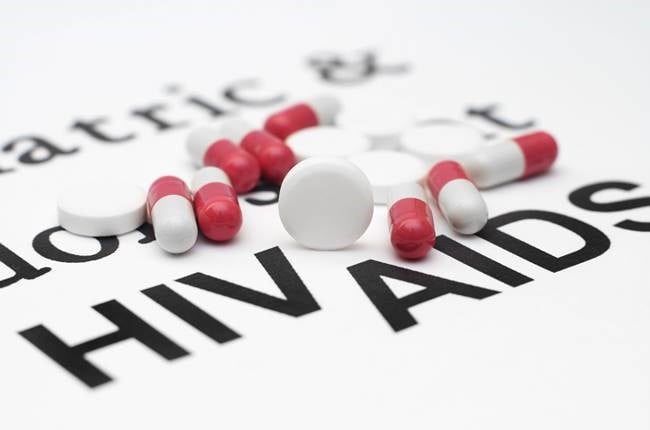
While progress has been made in the fight against HIV/Aids, since the 13th International Aids conference took place in South Africa, the battle is far from over, writes SANAC CEO Dr Thembisile Xulu.
A sea of demonstrators, thousands in their numbers, representing a coalition of different races, genders and age groups would all descend upon Durban's City Hall, placards in hands, a burning passion in their eyes and a single message on their lips.
On the frontline was one Winnie Madikizela-Mandela - her roaring voice becoming a loudhailer, blaring the unified message of the thousands following behind her and the millions more advocating throughout the country: "Make a difference."
Their plea would ring throughout the days ahead, when delegates from around the world sat for the 13th International Aids Conference, a first for the country, and coming at a pivotal time in South Africa's long battle against HIV and Aids.
It's been 20 years since that fateful day - our battle has been long, and while we have made positive strides, it is not yet over.
Progress
According to the Thembisa Model, 7.4 million South Africans were living with HIV in 2019, with about 180 000 more infections in the same year. In 2018, we lost 71 000 lives from Aids-related illnesses and the HIV prevalence (which is the percentage of people living with HIV) among adults was 20.4% that year.
But there has been progress in the number of Aids-related deaths since 2010, with a 50% decrease, from 140 000 to 71 000. The number of new HIV infections fell from 390 000 to 240 000 in the same period.
Our 90-90-90 targets envision that, by December 2020, 90% of people living with HIV will know their HIV status, 90% of people who know their HIV-positive status will be accessing treatment and 90% of people on treatment will have suppressed viral loads.
South Africa is currently at 93-71-88 for the total population serviced through the public sector.
The provincial breakdown shows that all provinces have achieved the first 90 target, with KwaZulu-Natal performing the uppermost at 93%, despite having the highest burden in the country. The second 90 target remains a challenge, both at national and provincial levels. Performance on the third 90 targets was also successful for almost all the provinces.
In order to achieve our 90-90-90 targets, we must increase the number of adult men on antiretroviral therapy (ART) by 570 096; adult women by 480 401; and children by 58 963. The country needs to focus on initiation onto ART, but also to ensure that clients are retained in care.
We need to find innovative ways of facilitating social behavioural change to encourage treatment adherence. If people living with HIV are empowered with enough information and other disease management tools, they will make the right choices.
The success had with controlling the HIV epidemic has resulted from an amalgamated effort between different aspects of society. Rural community leaders have pushed for their wards to get tested and treated, urban clinics have provided facilities for testing and medicine retrieval and the government has led the way with a number of communication and awareness campaigns that have spread over generations.
The approach has been as wide-reaching and unbiased as the epidemiology of the virus.
Open dialogues between partners, communication between communities and their healthcare providers and education campaigns for the general population have seen the burden of stigma and discrimination placed on people who have tested positive eased tremendously - but it still exists in pockets across the country.
This must be eradicated entirely.
This year, we commemorate World Aids Day under the theme: "We're in this together, Cheka Impilo!"
The theme centres on the Cheka Impilo National Wellness Campaign, which challenges individuals to make responsible health choices.
This is a fitting theme not only for those living with, and vulnerable to, HIV and Aids, but for all of South Africa as we jointly face a new threat brought on by Covid-19. As with HIV, mitigating one's risk of contracting Covid-19 is an individual responsibility, taken on by strictly adhering to preventative measures and adapting our behaviour to minimise our exposure.
Threat of HIV
And while the Covid-19 pandemic has placed gargantuan pressure on health systems, exhausted healthcare workers and diminished medical resources, the threat of HIV cannot - and has not - been forgotten.
While there were initial challenges, antiretroviral treatments were rolled out; tests were conducted and laboratories still processed the samples; clinical trials involving HIV treatments continued and findings were still achieved.
The first day of December has for decades been used to remember the lives of the people who were lost to HIV and Aids, to evaluate our response strategy, and to reaffirm our commitment to curb the spread and eliminate HIV as a public health threat.
Despite this year marking one of the most devastating times in history, our continued efforts to end Aids is slowly bearing fruit.
Two decades ago, when the world descended on our east coast, then-president Nelson Mandela brought to a close a successful conference with these words:These were Tata's instructions to us a nation, and we shall continue to carry out this duty until a cure is found.
- Dr Thembisile Xulu is the chief executive officer of the South African National Aids Council (SANAC).
*Want to respond to the columnist? Send your letter or article to opinions@news24.com with your name and town or province. You are welcome to also send a profile picture. We encourage a diversity of voices and views in our readers' submissions and reserve the right not to publish any and all submissions received.
Disclaimer: News24 encourages freedom of speech and the expression of diverse views. The views of columnists published on News24 are therefore their own and do not necessarily represent the views of News24.
